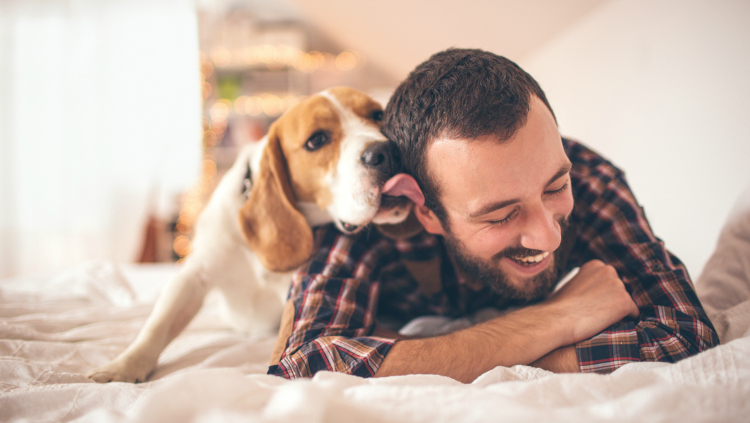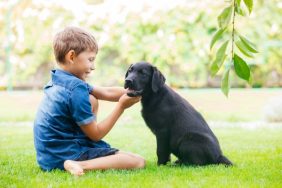Photo: AleksandarNakic (Getty Images)
Dogs are the best, especially when they’re puppies (once you get past the potty training). Now, assuming you’ve adopted your pooch, it goes without saying that you’re going to love them unconditionally and ignore people from now on. But will your puppy love you back? That’s less certain.
To ensure your love is reciprocated, follow these proven methods to make your dog beg for your affection.
Puppy love onscreen: 10 Must-See Movies For You And Your Dog
Cinematic canine: The Robot Dog From ‘Doctor Who’ Gets His Own Movie
Follow Mandatory on Facebook, Twitter, and Instagram.
PuppyLove2
-
Give your pooch their own space.

Dogs like being close with their owners, meaning sleeping in a big comfy bed with their owner is likely what they’ll prefer. However, if that’s not alright with you (which is totally understandable) set Rover up with their own designated space. Make it special. Lay out a dog bed with some blankets and have a basket of toys nearby. At night, carry the bed and blankets into your bedroom.
-
Practice positive reinforcement training.

It’s a good idea to train your dog from a young age (cover the basics: sit, stay, come, and heel). When they respond correctly, reward your canine with treats (organic is best) or verbal praise (“Good boy!”) when it follows your commands to let your pet know they’re doing something right.
-
Learn about their interests.

Like any human being, doing things your pup enjoys will make them like you more. You may not know this, but it improves their self-esteem as well. If your dog loves playing fetch, play fetch every damn day (they deserve it!). If they like to dig, provide a designated digging spot. Get a sandbox.
-
Give your dog toys.

Get in the habit of playing with your dog regularly. Just make sure the toys are an appropriate size (it will say on the package). Make sure you regularly inspect the toys for rips and tears as they could become choking hazards.
-
Show affection.

Like you would treat your own child or significant other, showing physical affection tells Spot you love them. You’ll be able to tell fairly quickly which types of affection they like most. Generally speaking, dogs don’t love having their face or head patted. Strangely enough, hugs aren’t well received either.
-
Take the dog for walks.

You’re busy, we get it, but taking your dog for daily walks is important. A well exercised dog is a good dog. On weekends, consider taking your canine companion on longer walks or hikes as a special treat. If you’re lazy and don’t feel like walking, dog parks are a great substitute.
-
Keep your dog close.

Dogs are like a needy partner. Being around you makes them feel secure and content. If you don’t offer your pooch enough love and companionship, they will get lonely and lash out (likely on your shoes and furniture).
-
Don’t lash out.

Do not punish your dog when it misbehaves. Never yell at, hit, or frighten your dog. Reacting in anger will make the dog fear you and can damage the relationship. Be patient with the dog. Some dogs will take longer to respond to training than others.
-
Socialize with your dog.

Keep in mind that your dog will be happier and more fulfilled if it's coming into contact with other dogs or people. Try to let your dog socialize with others in a calm, structured environment instead of in a chaotic place where the dog might feel overwhelmed. For example, instead of just letting the dog run around the dog park, you might visit a friend that has a calm dog.






